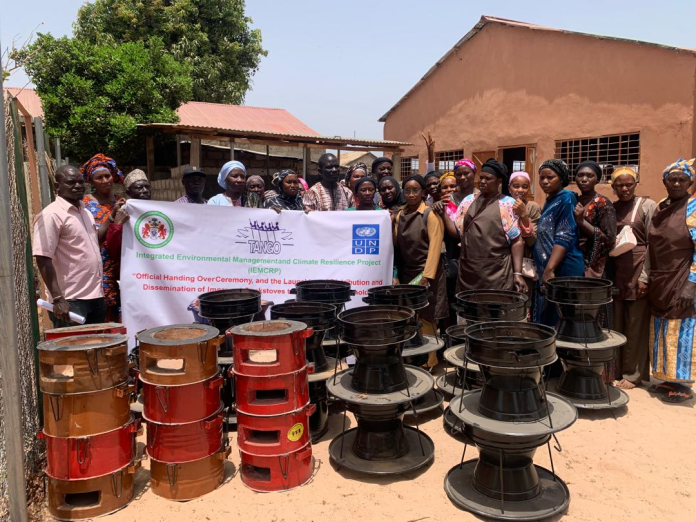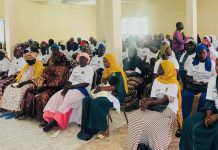By Amadou Manjang
The Association of Non-Governmental Organisations (TANGO) has trained over 30 women in the North Bank Region (NBR) to produce improved cooking stoves as part of efforts to protect the forest from the harmful effects of charcoal and firewood production.
The women have so far produced around 500 improved stoves, which will be distributed across Madina Kanuma and nearby communities. The initiative is implemented by TANGO and proudly supported by the United Nations Development Programme (UNDP) under the Integrated Environment Management and Climate Resilience Project.
As part of the project’s launch and the dissemination of the cookstoves to vulnerable households, TANGO also officially handed over a facility to serve as a production and coordination hub for the women.
Ahmed A. Salami, Project Coordinator, said the platform is a base for promoting sustainable cooking solutions. He emphasised the crucial role women will play in environmental conservation, noting, “This will reduce reliance on firewood and charcoal while improving climate resilience. It also aims to strengthen the productive capacity of youth and women.”
He added that the initiative is designed to inspire change and ignite hope in environmental sustainability across The Gambia.
Lamin Drammeh, the Alkalo of Madina Kanuma, welcomed the project, saying it would significantly contribute to protecting the forest and reducing greenhouse gas emissions. “This project will bring income and employment to our people,” he said, urging the women to remain united and dedicated.
Alagie Mboob, Chairman of the Village Development Committee, described the project as timely and impactful. “The stove is easy to use and helps minimise the use of charcoal and firewood. This should be scaled up for wider impact,” he remarked.
Women’s leader Haddijatou Bah said that in addition to making the stoves, the group is actively involved in mangrove planting to support ecosystem restoration.
Lieutenant Colonel Salifu Correa also emphasised the importance of the initiative in preserving forests.
“This knowledge must be passed on to others. You must work together to protect the forest,” he urged the women.
Executive Director of TANGO, Ndey Sireng Bakurin, said the project is not only for the benefit of the women but also their families and society at large. “Women are natural resource managers and need access to clean energy sources,” she stated.
She added that more communities will benefit from the training and highlighted the health benefits of the stoves, noting that they help users avoid harmful smoke exposure.
Bakurin stressed the importance of environmental stewardship.
“The women will continue to produce the stoves. They must remain united and ensure they protect the environment. The North Bank Region is critical in halting the advance of the Sahara Desert,” she said.
She concluded that the five-year project includes plans for tree planting and aims to address deforestation nationwide, ensuring broad and lasting benefits for Gambian communities.






















